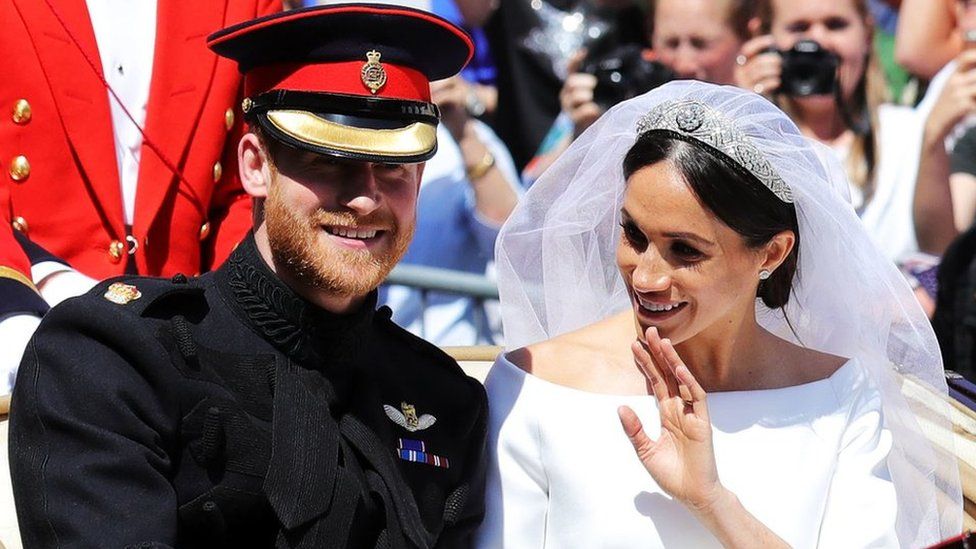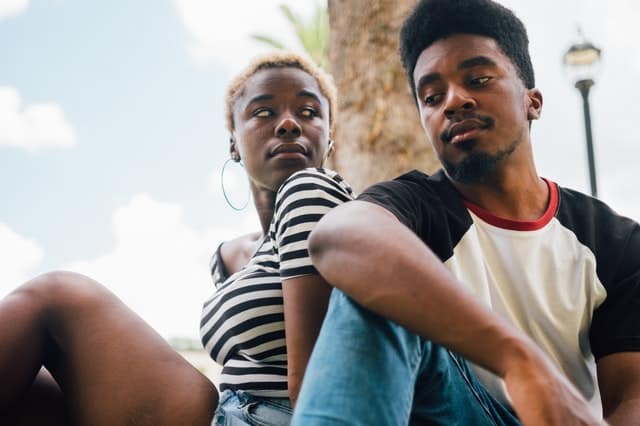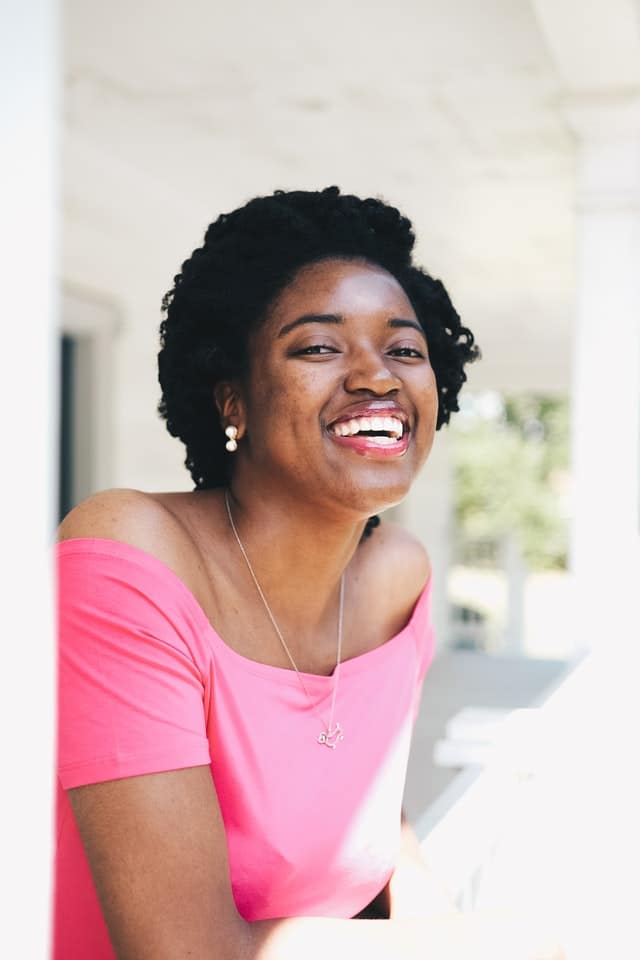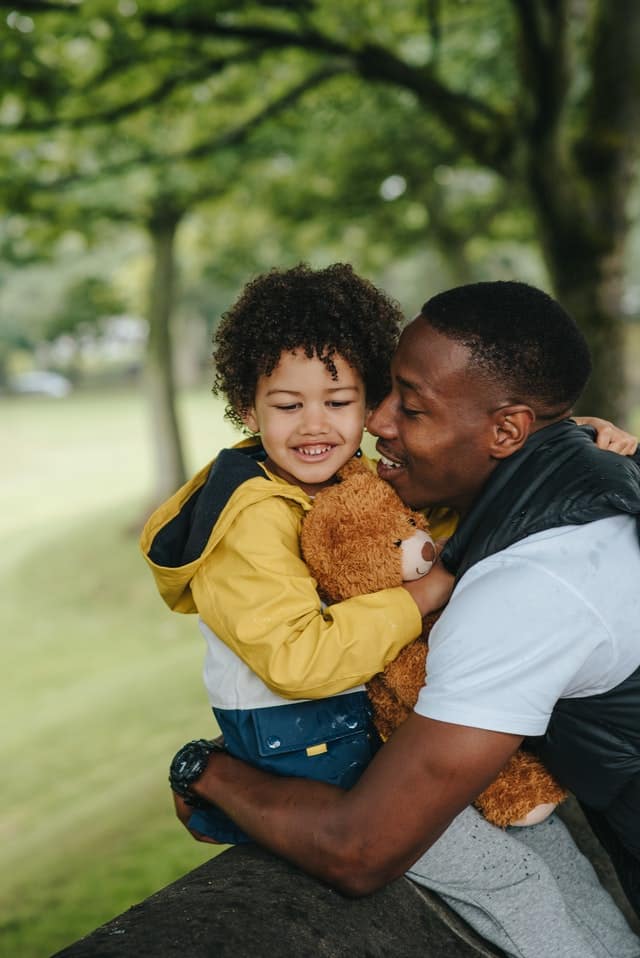This situation with the Duke and Duchess of Sussex, Harry and Meghan has been an ongoing one; but it became much more revealing when the couple shared on an interview with talk show host Oprah Winfrey. This interview entailed what they experienced in Buckingham Palace with the royal family; and it bordered around things like racism, mental health issues, and more.

Parenting Coach Yetty Williams had this discussion with LagosTalks FM on the radio series, Parenting Today. Here are the highlights of the conversation.
What does this mean for Black girls around the world?
When Meghan became a princess, in a way, it inspired young black girls around the world. From what Meghan said in the interview, what she experienced; should not change the narrative, but make us more aware. It should make us have real answers; the truth is, we need to keep in mind that racism is real, and it’s real because when you don’t know, you just don’t know. You just have never dealt with somebody from a different race before, and there are certain things you are just not going to be aware of or prepared for because you have never had that as your reality.
Read Also [How Meghan Markle Is An Advocate for Women]
And that’s part of what causes a lot of racism, sometimes it’s just the fact that you don’t know that this is offensive; you don’t know that this is how somebody of a different race sees the world. And sometimes the fear that comes from not knowing is what makes a lot of us, intolerant of each other.

So we don’t want to have this conversation for girls to think that loving someone outside your race and country is impossible or problematic. What we should be saying is that you should be very aware that these are situations that can pop up; and how does this affect the decisions you make, from who you date, who you choose to marry, how much you understand their family, and what is going on behind the scenes. Because a picture that’s painted versus the reality of what’s going on behind the scenes can be night and day. We don’t want our girls to take this experience to feel disempowered or to feel that they cannot do everything that we’ve been telling them that they can do.
How does this affect the average Nigerian woman?
One of the beautiful things about being born and raised African is that racism is not something that we think about; because the majority are all of African descent, and there’s no sense of my color. I remember when I went to school in university and the very first time I had realized that I was black. Somebody asked me a question that would I prefer to be called, African American, or called black. This was a girl who was African American herself, and she felt she had been facing a lot of racism in the university; so she asked me that question, I looked at her and I said, “neither”, and she was like, “What do you mean neither?” I said, “I’m African, I’m not African American neither am I black”, and that was my reality.

Tribalism in Nigeria and How it affects our children
We’re looking at this situation and story and thinking, why are we even talking about it? It’s because a lot of us Nigerians love the royal family in all of us, I guess also because of our history, there’s an affinity for the British that we have. And the main thing to talk about is the fact that people will always face challenges, and it’s how you handle those challenges that matter. Because it’s interesting to me that people are divided into two, some people are blaming Meghan; saying she came to drive the royal family apart.
And there are people on the other hand, who are applauding Harry and saying, look a man that is standing up for his wife. He realized that she’s struggling, and he was willing to step up and say he’s not going to let his wife suffer in silence; chose to make a very difficult decision to leave the family he’s grown up in, for the family that he has chosen. He has decided that is so important that if it’s going to destroy her or destroy them, he’s going to step away.
So I feel that is the direct correlation that we should be talking about; using that to talk to our young people that are dating. Are you dating somebody who’s going to stand up for you, or is it somebody that’s going to say; ‘that’s just how we are here, so you just have to get with the program’.
Conversations parents should have with their children
Parents can say one thing and then what they leave out is very different; and I think for parents, that is what happens when it comes to the marriage stage of conversations. Marriage is challenging because it’s two people coming together to create their new nation. They are bringing some good and some bad from how you were raised, your view of the world, coming together to create your own story. Because of that fear, sometimes that marriage is so challenging. Parents seem to fall on the side of saying, “marry somebody that is like you”; to reduce the potential for drama, learning a new culture, or a new way of living.
For some parents, when the children were young, they have no problem with who their friends are; they can have friends in many parts of Nigeria for example, they don’t care. Then the minute they bring in that same person of a different culture and tribe, the parents start saying “No you can’t”. It causes some confusion, especially for children today that see themselves as citizens of the world; they don’t see these differences. All they see is another individual, that they either like or love.
I think it’s more important than parents in that situation should ask their child real questions; Why is this the person you’ve chosen? Are you sure this is the right person for you? Have you asked all these questions? Do you understand their culture? Do you understand their family dynamics? Sometimes people from the same tribe will get married and the marriage will have more drama than when you get married to somebody from Mars. So it’s not about just whether or not you have the same name or the same local government; it’s really about much more than that
Being Intentional as a Parent
Being intentional is not easy, and it means that your message is the same all the time. It means that you’re treating people the same no matter the class, or what they have in their bank account, their color, or their religion. You should teach people with fairness, kindness, and have a sense of justice for all people. If that is what we all focus on more and more, the reality is that we’re not going to fix it overnight; and it’s not even just Nigeria, everywhere in the world.
I was talking to somebody the other day and I asked “if your first phone happens to be an Android phone versus an iPhone, would it make a difference” and this is a young teenager and she said, “Yes, with the way things are now if it’s not an iPhone the person gets as their first phone, they’re not going to be happy”. I said, “but you haven’t worked a day in your life, why should that matter”. And the person responded and said, “You asked me for an honest answer”.

So, honestly, we will not fix everything in the world; what we can do is one family at a time, make sure that we raise children that have a sense of fairness, treating everybody equally. And they need to do those things only when they see you doing it as well; so you can’t be a parent who talks down to people, gossip about people when they are not there; or you make snide comments about what they have or don’t have. Your children are watching all of thatl; and those are the children who are likely to go out and make those kinds of comments themselves.
We should all ask ourselves as intentional parents and individuals in general; what are we learning from this, what are the highlights of the Harry and Meghan story? What can we pull out, because your children are watching it, they are seeing the headlines. So I just want to encourage everybody to have really deep conversations with your children; no matter what age they are.


